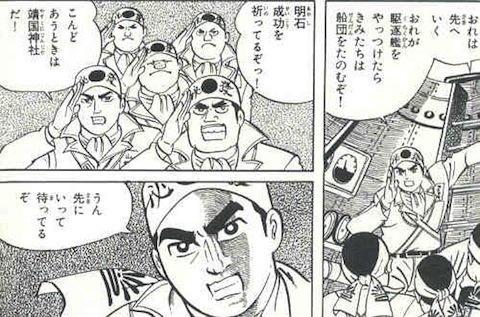A Different Approach

I'm a point in my book where I need to describe a cultural misunderstanding, one that has dire consequences for all parties involved. It's a tricky thing to describe, since my worldview naturally aligns with the American characters—in trying to write the scene, I keep on expressing too much sympathy for their predicament. To wriggle out of that closed perspective, then, I've been thinking about one of my all-time favorite examples of cultural explication: Yoshio Emoto's attempt to tell a Western audience why his fellow Japanese were so reluctant to surrender during World War II. Few other anecdotes about human conflict have made such a deep impression on me:
Westerners often ask me how the Japanese could choose death over surrender. I have to bring up the traditional notion of sacrifice and heroism in the defense of the nation, "Yamato Damasii." It comes largely from the spirit of the Samurai. We were taught that "Yamato Damasii" was a virtue, a fundamental principle of the Japanese people. To be taken captive was against this principle, and the biggest shame and disgrace to us. On one mission, one of the men in my unit was shot and critically wounded. He was young and had a wife and small children. I asked him whether he wanted to leave a message for anyone. He said there was no message to leave. Then he faced the direction of the Imperial Palace, threw his hands in the air and said, "Long live the Emperor!" and died. I do not think that Westerners can fully understand this behavior.
I might quibble with his last line, though. I don't think true understanding of differing worldviews is beyond our species' capacity. I just think it takes a heckuva lot of work—more than most people are willing to put in.
(Image via the truly awesome Kamikaze Images)




